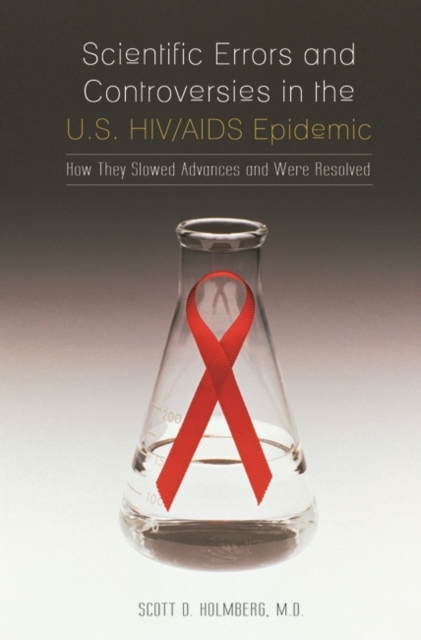
Scientific Errors and Controversies in the U.S. HIV/AIDS Epidemic : How They Slowed Advances and Were Resolved Hardback
by Scott D., M.D. Holmberg
Hardback
Description
Our understanding, prevention, and treatment of HIV have made remarkable strides in the past two decades, but the way has not been smooth or straight.
Part history, part narrative, and mainly scientific autopsy, this book is an insider's account of the errors, controversies and corrections that have marked the first 25 years of the HIV/AIDS epidemic in the United States.
The author discusses the sources of these errors and controversies and provides many examples.
These range from the scientifically contentious and protracted-- such as laboratory contaminations that lead to identifying HTLV-III and HTLV-IV, or arguments that there were HIV patients who were silently infected, and not detectable by standard HIV tests--to controversies that the scientific community quickly evaluated and discarded--such as the belief that HIV is spread by mosquitoes, or that one AIDS-associated cancer is caused by poppers, nitrates inhaled for sexual stimulation.
This book describes how these many scientific errors occurred, how they got propagated, how they distracted researchers and the public, and how they got corrected. Holmberg, a longtime past Chief of Epidemiology in the CDC's Division of HIV/AIDS Prevention, shows us how scientific errors and controversies inevitably occur in the absence, ignorance, or dismissal of good data, and the promotion of bad data or analyses.
He suggests reforms of governmental processes, medical and scientific journal review, and in graduate education that may help scientists recognize and correct errors faster, and so deal with future epidemics more efficiently.
Information
-
Out of stock
- Format:Hardback
- Pages:240 pages
- Publisher:Bloomsbury Publishing Plc
- Publication Date:01/12/2007
- Category:
- ISBN:9780313347177
Information
-
Out of stock
- Format:Hardback
- Pages:240 pages
- Publisher:Bloomsbury Publishing Plc
- Publication Date:01/12/2007
- Category:
- ISBN:9780313347177






